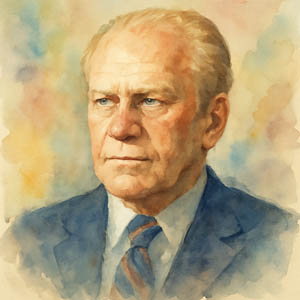 On this day in 1974, just one month after President Gerald Ford took office and Richard Nixon resigned amid the Watergate scandal, Ford signed Proclamation 4311 — granting Nixon “a full, free, and absolute pardon.”
On this day in 1974, just one month after President Gerald Ford took office and Richard Nixon resigned amid the Watergate scandal, Ford signed Proclamation 4311 — granting Nixon “a full, free, and absolute pardon.”
It was a bold act of mercy for a nation in turmoil. The pardon covered any federal crimes Nixon “committed or may have committed or taken part in” during his presidency.
Ford, known for his integrity and steady decency, knew the decision would be unpopular. He believed Nixon’s resignation had already exacted a profound toll — and that the country needed to heal. “Our long national nightmare is over,” he had declared upon taking office.
But the cost was high. The pardon likely ended Ford’s chances of winning the 1976 election. Yet he never wavered. “I remain convinced,” he reflected years later, “that pardoning Nixon was the right thing to do.”
Secretary of State Henry Kissinger called the decision “a courageous and humane act.” In moments of crisis, Ford chose mercy over vengeance — character over calculation. History still takes note.
 When the world fractures, lead with mercy.
When the world fractures, lead with mercy.
